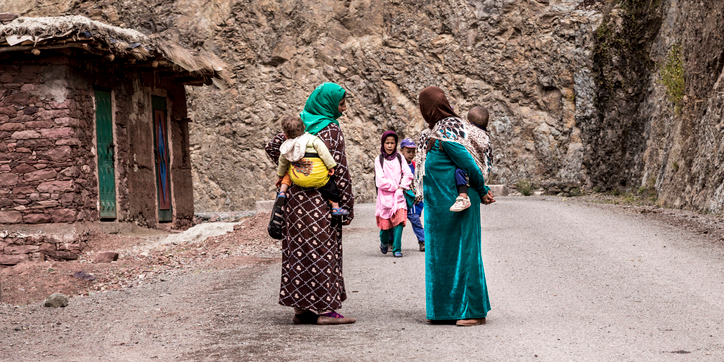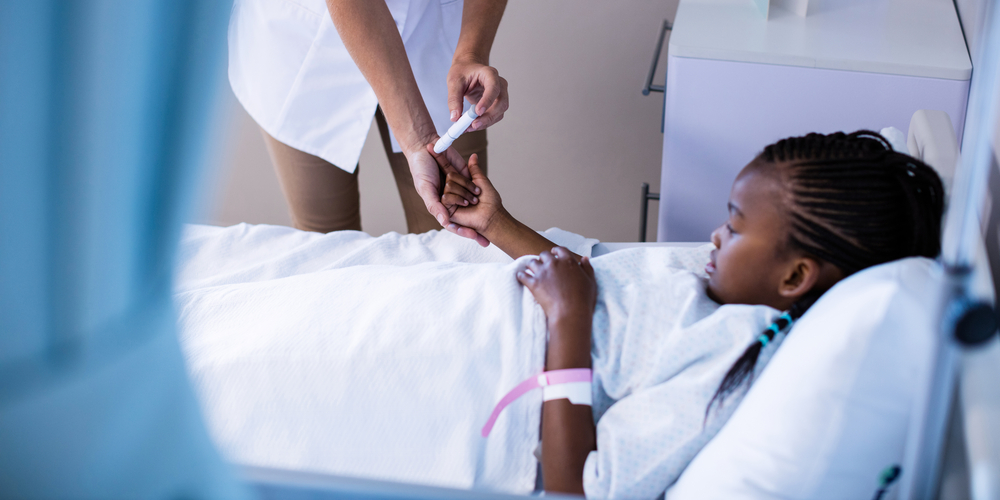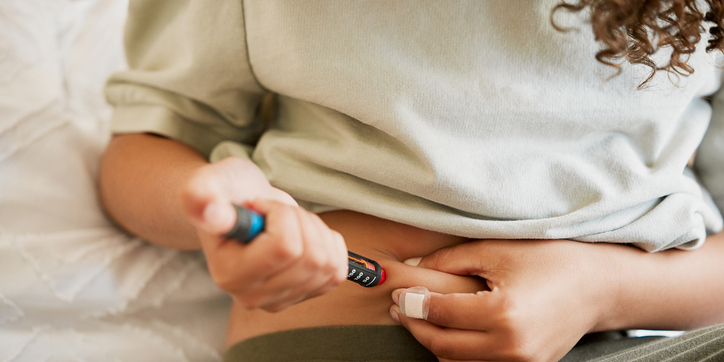2022/23 : In Morocco, care for diabetic children
In Morocco, 30,000 children suffer from type 1 diabetes (insulin-dependent diabetes) and each year, 3,600 new cases are recorded. This diabetes is a chronic, serious and incurable disease.

The project aims to help diabetic children and their families who cannot afford insulin and measuring strips.
Explanation: the pancreas secretes insulin which promotes the storage of sugar in the muscles and liver. Since diabetic children have a deficit of insulin, glucose accumulates in the blood and can no longer be used to produce the energy needed to function vital organs. The body then replaces it with another fuel, fatty acids (lipids), which leads to the production of harmful acidic substances. The symptoms are known: fatigue, dehydration, nausea, vomiting, difficulty breathing, confusion, coma.

Complications can be serious: heart attack, stroke, blindness, kidney problems that can lead to permanent dialysis, etc.
In children, diabetes is often diagnosed during an episode of hyperglycemia that can be fatal. Hospitalization must be systematic to perform a complete assessment and decide on an appropriate treatment to maintain a correct blood sugar level (glycemia). A therapeutic education process then begins (child, parents and relatives). Because the diabetic child is the first actor in his health. The more he knows about his disease, the better he will be able to monitor his blood sugar and inject the necessary doses of insulin while adopting a balanced diet and regular physical activity. This self-monitoring is carried out by taking a drop of blood from the fingertip which, placed on a strip and read by a suitable device, can indicate the blood sugar level.


The project is located in Errachidia (Draa region, Tafilalet), a few kilometers north of the Sahara. The NGO Pédiatres du Monde works on site with the Moroccan association CHIFAA, which brings together the parents of 91 children with diabetes. PDM volunteers provide therapeutic education to these children and their families. This blood sugar measurement must be done 4 times a day, noting all the results in order to optimize insulin doses. The importance of this constraint is not always perceived and must be the subject of repeated education. Among these 91 children, 64 children only benefit from the Moroccan minimum health coverage (RAMED), which does not cover the purchase of consumables (strips) necessary to balance their diabetes. However, a strip costs €0.25 x 4 / day, or €360 / year / child. Some poor families cannot afford this expense. P
La Fondation La Petite Etoile is participating in this project by funding the test strips to monitor children's blood sugar levels
Total budget : € 23,000
Co-participants : Fondation La Petite Etoile, Fondation Lama , Pediatres du Monde, Moroccan Association CHIFAA
Funding provided by Fondation La Petite Etoile : € 6,000 (i.e. the care of 16 children for 1 year).
In Morocco, 30,000 children suffer from type 1 diabetes (insulin-dependent diabetes) and each year, 3,600 new cases are recorded. This diabetes is a chronic, serious and incurable disease.

The project aims to help diabetic children and their families who cannot afford insulin and measuring strips.
Explanation: the pancreas secretes insulin which promotes the storage of sugar in the muscles and liver. Since diabetic children have a deficit of insulin, glucose accumulates in the blood and can no longer be used to produce the energy needed to function vital organs. The body then replaces it with another fuel, fatty acids (lipids), which leads to the production of harmful acidic substances. The symptoms are known: fatigue, dehydration, nausea, vomiting, difficulty breathing, confusion, coma.

Complications can be serious: heart attack, stroke, blindness, kidney problems that can lead to permanent dialysis, etc.
In children, diabetes is often diagnosed during an episode of hyperglycemia that can be fatal. Hospitalization must be systematic to perform a complete assessment and decide on an appropriate treatment to maintain a correct blood sugar level (glycemia). A therapeutic education process then begins (child, parents and relatives). Because the diabetic child is the first actor in his health. The more he knows about his disease, the better he will be able to monitor his blood sugar and inject the necessary doses of insulin while adopting a balanced diet and regular physical activity. This self-monitoring is carried out by taking a drop of blood from the fingertip which, placed on a strip and read by a suitable device, can indicate the blood sugar level.


The project is located in Errachidia (Draa region, Tafilalet), a few kilometers north of the Sahara. The NGO Pédiatres du Monde works on site with the Moroccan association CHIFAA, which brings together the parents of 91 children with diabetes. PDM volunteers provide therapeutic education to these children and their families. This blood sugar measurement must be done 4 times a day, noting all the results in order to optimize insulin doses. The importance of this constraint is not always perceived and must be the subject of repeated education. Among these 91 children, 64 children only benefit from the Moroccan minimum health coverage (RAMED), which does not cover the purchase of consumables (strips) necessary to balance their diabetes. However, a strip costs €0.25 x 4 / day, or €360 / year / child. Some poor families cannot afford this expense. P
La Fondation La Petite Etoile is participating in this project by funding the test strips to monitor children's blood sugar levels
Total budget : € 23,000
Co-participants : Fondation La Petite Etoile, Fondation Lama , Pediatres du Monde, Moroccan Association CHIFAA
Funding provided by Fondation La Petite Etoile : € 6,000 (i.e. the care of 16 children for 1 year).